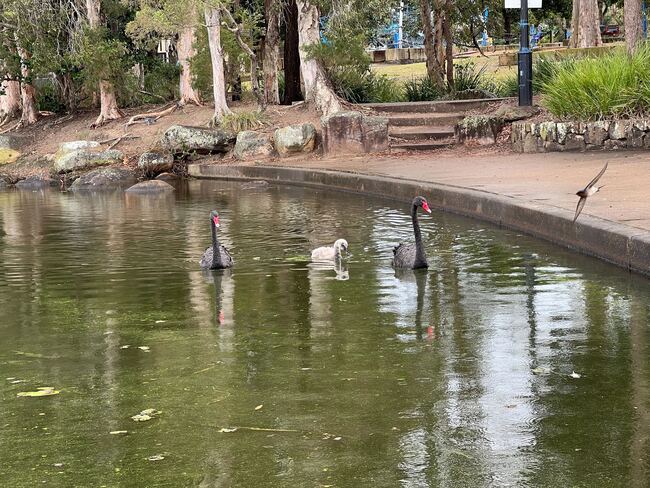In an effort to improve the water quality and tackle the algal blooms that have plagued Forest Lake for more than a year, Brisbane City Council and Monash University are running a 12-month trial using Diatomix, a liquid designed to increase ‘good’ algae forms.
Similar trials using Diatomix have been done in Victoria and Caboolture, which the Brisbane City Council said had returned “promising results.”
The cause of the lake’s poor quality and toxic green-algae blooms remains unclear.
Queensland’s Urban Utilities, which is responsible for Brisbane’s wastewater network, investigated a broken wastewater pipe earlier this year.
“Urban Utilities was made aware of elevated levels of Enterococci at The Lake Parklands in May 2025 following periodic water testing conducted by Brisbane City Council,” an Urban Utilities spokesperson said.
“Crews carried out an inspection of the nearby wastewater network to confirm it was operating effectively, and as a precaution, carried out minor works to help with preventing potential impacts during periods of high stormwater flows in heavy rainfall.”
Urban Utilities said they conducted Microbial Source Tracking testing in June this year, which returned high levels of bird waste in the lake.
Levels of human waste, or human source E. coli, were little to none, which confirms wastewater has not entered the lake or impacted the water quality, an Urban Utilities spokesperson said.
Brisbane City Council, which is responsible for stormwater-related issues, said no broken stormwater pipe in Forest Lake had been detected.
The Lake Parklands is a man-made lake and does not flow into any nearby river or lake catchments. When stormwater runoff, garden fertilisers, and bird waste enter the lake, it can lead to algae growth, a council spokesperson said.
During the 12-month Diatomix trial, the council will test and monitor the lake’s water quality fortnightly and will deliver a review at the end of the trial.
Lord Mayor Adrian Schrinner said Brisbane City Council had worked to address algae levels in the lake in the past and referred to “major desilting and revegetation works in 2019.
“Now we are partnering with Monash University to trial a new approach that brings together science in an environmentally friendly and practical way.”




